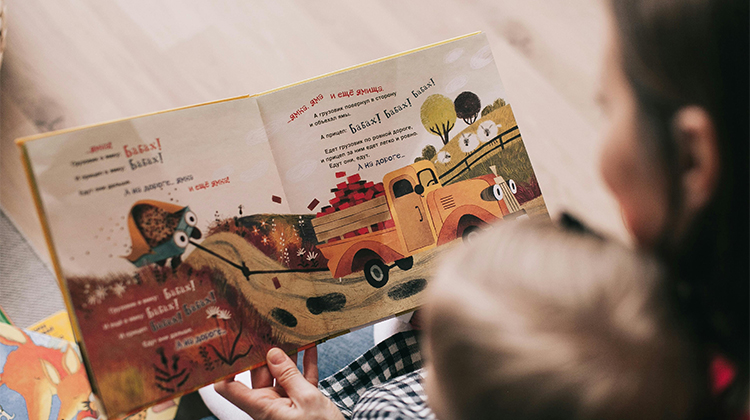Research Underlines the Importance of Reading at Home

Literacy begins in the home, and it relies on parents being involved in their child’s reading.
Children who received books at home were more likely to demonstrate emerging language and literacy skills and were eight times more likely to be interested in reading when exposed to books in the home for 12 months.
Two parallel studies, one exploring the impacts of regular reading on 343 families from Tamworth, NSW, and another surveying over 86,000 families from around the world were conducted.
Both studies, which surveyed families taking part in Dolly Parton’s Imagination Library, found a significant impact of bringing books into homes as early as possible on children’s positive shared book reading habits, emerging language, and literacy skills as well as family engagement.
Dolly Parton’s Imagination Library program gifts books free of charge to children from birth to age five in Australia, Canada, Ireland, the UK and the USA. It has been run in Australia for over 11 years by not-for-profit United Way Australia and currently, has more than 43 thousand children enrolled in over 450 communities nationally. In total, the charity has provided over 1.3 million books to Australian children.
Macquarie University PhD candidate, Claire Galea, conducted the studies in partnership with United Way Australia and the Dollywood Foundation to uncover the quantitative and qualitative factors of shared reading and the impact on literacy.
“As the nation grapples with concerns around the recent NAPLAN results that speak to a harsh reality about our approach to early literacy, this research provides a promising solution,” Galea said. “The findings highlight the significant impact access to reading materials - in this case through the Imagination Library - has on children’s love of books, emerging literacy skills and family life.”
The Australian study, ‘The Impact of Shared Book Reading on Children and Families: A Study of Dolly Parton’s Imagination Library in Tamworth, Australia,’ found that children in Tamworth are being read to more often, for longer durations and have more books in the home than the average Australian child.
“Beyond these early skills, the study showed 85 per cent of caregivers felt more connected to their child and reported spending more quality time together as a family as a result of receiving books. We also witnessed Tamworth City Library, which was a hub for the program, increase library enrolments and develop stronger connections between residents and early years services,” said Galea.
Frequent shared book reading was associated with important emerging literacy skills including concepts about print, knowledge of letter names, and receptive and expressive vocabulary.
The world-wide data on over 86,000 families demonstrated that children on the Imagination Library were more likely to be read to more often, to be interested in books or reading and demonstrate emerging literacy skills compared to children not on the program.
Further to that, after receiving approximately 12 books, children were more than eight times more likely to be interested in books.
Galea emphasised the importance of the research in understanding the link between access to books and improvements to early literacy skills. “Our data provides compelling evidence that access to books from an early age can significantly enhance a child’s understanding of early language and literacy practices in the home. This is particularly crucial in disadvantaged areas, where a lack of books in the home is a persistent issue.”
In summary, the findings in Tamworth align with the key trends observed in Galea’s world-wide study, “The importance of access to physical books in the home, as highlighted by the research, may be a fundamental step in helping address the current literary crisis,” Galea said.
According to Liz Dibbs, Chair of United Way Australia, the recent NAPLAN results have reignited discussions around early literacy with national NAPLAN scores showing one-third of Australian school students are not meeting basic literacy and numeracy benchmarks. Results for Indigenous and regional students were even more worrying, with indigenous students disproportionately affected, with those needing additional support at three times the national average.
“When children receive engaging material - and families receive consistent support - they are more likely to engage in reading regularly which in turn improves early literacy levels”.
Both studies underscore the significant benefits of participating in the Imagination Library, with children showing enhanced emerging language and literacy skills and a stronger interest in books after being involved in the program.
Dibbs said the power of a book is profound. “It’s not just about the physical act of reading; this is powerful in itself, but it’s also about creating an environment where children feel valued and connected, and where families can thrive together. The evidence is clear – very early intervention in literacy and support works. It engages children, families and carers well before school and also connects them to their community. These early years are just critical and investment in them will reap so much for Australian children. We want every Australian child, regardless of where they are born, to develop a lifelong love of reading and have access to all the opportunities for their future that come with strong literacy skills.”